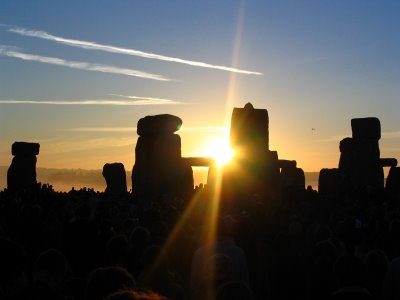
Solstice, or Litha, means a stopping or standing still of the sun.
The summer solstice is the longest day of the year and is celebrated by thousands of pagans across the world. In the northern hemisphere the Solstice usually falls around June 21.

Stonehenge, UK’s ancient monument in Wiltshire, is believed to have been used as an important religious site by early Britons 4,000 years ago.
Recent pagan celebrations at the site began in the 20th Century.
On Litha, the central Altar stone at Stonehenge aligns with the Heel stone, the Slaughter stone and the rising sun to the north east.